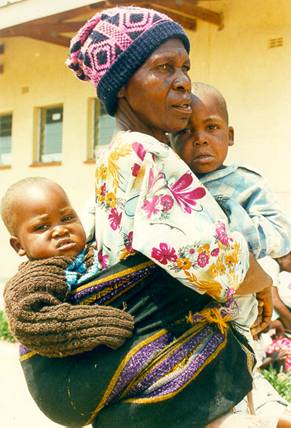|
|
Zimbabwe: Evictions Continue Despite International Condemnation
IRIN News
Zimbabwe
July 25, 2005

HARARE - Ignoring a call by the United Nations to halt evictions of people living in unauthorised housing, Zimbabwean police on Friday ordered residents out of Porta Farm, one of Harare's oldest informal settlements, about 35 km west of the capital.
Since the launch of Operation Murambatsvina ('Clean Out Garbage') in mid-May, the UN estimates that 700,000 people have been made homeless or lost livelihoods as a result of the blitz on the informal homes and unlicensed vending of the largely urban poor.
A report by UN-HABITAT Executive Director Anna Tibaijuka after a two-week fact-finding mission to Zimbabwe recommended that the evictions, "carried out in an indiscriminate and unjustified manner, with indifference to human suffering", be stopped.
"The government of Zimbabwe should immediately halt any further demolitions of homes and informal businesses and create conditions for sustainable relief and reconstruction for those affected," read the report, presented last week to UN Secretary-General Kofi Annan.
The latest police operation at Porta Farm was the second time in a month they had tried to clear the 7,500 settlers from the area. At the first attempt in June, homes and markets were demolished to force people to return to their rural areas, or to a holding camp at Caledonia Farm, 15 km north of Harare, but many of the residents refused to move.
Aid workers said on Monday that the police were determined to clear the remaining people. Residents were being grouped according to place of origin in preparation for their transport out.
The evictions, part of a drive to "clean up" the cities, have been carried out despite the Porta Farm community having won a high court order last year allowing them to stay.
When IRIN visited the settlement on Sunday, around 70 policemen were monitoring the removal of the residents, who are among the poorest and most disadvantaged in Harare.
"We have been camping here since Friday, and we will only go when all the people have been removed. This time our bosses have instructed us not to use force on the settlers," said a police officer - a reference to the death of 11 people when police used teargas in a bid to evict residents in September last year.
In one corner of the camp, reduced to rubble and heaps of household goods, five young men defiantly beat a drum and danced to an improvised song vowing not to move. Elsewhere, people were packing their belongings into trucks provided by the army and Harare municipality.
"I returned from Caledonia Farm two weeks ago because that place was like a prison for me and my three children," said Tabita Mugomba, a 38-year-old widow.
When the home she had lived in for 10 years was demolished in June, she went to Caledonia but left most of her belongings at Porta.
"Besides, I had to fend for my children, who have since stopped going to school. Here at Porta Farm I had been surviving by selling fish to motorists," said Mugomba, holding the hand of her thin seven-year-old boy.
Mugomba said she would try and move in with her brother and his family in Harare's working-class suburb of Mbare but was unsure about how well she would be received, as she had been out of touch with him for some time.
Porta Farm dates back to 1991, when the government moved thousands of people from unauthorised settlements in Harare; because it was supposed to be temporary, basic amenities like water, schools and health services were never provided.
Tibaijuka's report said Operation Murambatsvina has indirectly affected 2.4 million people, and the humanitarian consequences "are enormous".
"It will take several years before the people and society as a whole can recover. There is an immediate need for the government of Zimbabwe to recognise the virtual state of emergency that has resulted, and to allow unhindered access by the international and humanitarian community to assist those that have been affected," the report noted.
The government has dismissed the UN's findings as biased. Local Government Minister Ignatius Chombo told IRIN that the people had been evicted from illegal settlements, "and I don't think the UN can sanction illegality".
He stressed that the government's new corrective programme, Operation Garikai/Hlalani Kuhle ('Stay well'), would develop housing at an estimated cost of US $300 million.
"Our people are much happier because the government is giving them land, they are getting stands, and are getting government assistance," Chombo insisted.
On Monday only five families out of the original 4,500 people remained in Caledonia Farm after the authorities moved to close the transit camp at the end of last week. The government said that those without accommodation in urban areas and who were unemployed would be relocated to their rural homes where chiefs were asked to give them land and farming inputs.
Critics have questioned the ability of the cash-strapped government to afford the housing programme's price tag, and pointed to the immediate needs of the people - especially the young, sick and elderly - displaced by Operation Murambatsvina.
"The government is acting irrationally and hypocritically, because it is causing further suffering to the very people it says it is providing accommodation to," said Welshman Ncube, secretary-general of the opposition Movement for Democratic Change.
For the UN special envoy's report see: http://www.un.org/News/dh/infocus/zimbabwe/zimbabwe_rpt.pdf
|
|



